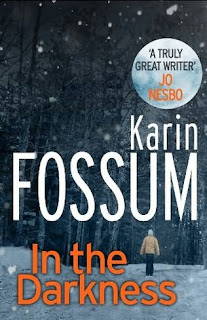This crime story, set in modern Stockholm, is Ohlsson's debut novel. It has a gruesome subject matter of disappearing children, a current favourite topic amongst Scandinavian crime writers, it seems. (See
Boy in a Suitcase by Leene Kaarbol and Agnette Friis, for example.)
'Unwanted', however, is a very engaging story and not as harrowing as the subject matter would suggest.
The narrative opens with the point of view of a man who obviously has some serious mental problems. In the dead of night he's lying awake next to a woman who he has previously abused. Again, it seems a current trend in crime fiction to reveal the madman at the centre of the story (
Jo Nesbo does this too).
Usually when a crime novel begins with a prologue in the head of the perpetrator, my heart sinks a little, but Ohlsson weaves the many points of view nicely into the story. Even though the reader knows 'who dunnit', this fact doesn't make you want to read to the end as fast as possible in order to find out why and how.
The narrative moves to a train journey during which a child goes missing. At first the estranged father of the little girl is suspected until she is found dead, dumped naked outside a hospital.
The main protagonists, trying to solve the crime in the book, are three very different policemen: a respected older police inspector Alex Recht, a younger policeman with marital problems, Peder Rydh, and a woman, Frederika Bergman, who has just entered the police force. She is a 'civilian', and an academic. It's clear from the beginning that Frederika doesn't fit into the cosy mutually respecting and lighthearted club the two men in the team have set up. Both Alex and Peder are constantly suspicious of Frederika's rather stiff official manner, or her different ideas on how to move the investigation forward.
But when another child is abducted, Fredrika's methodological approach to investigating a crime is shown to be more successful than the old-fashioned, instinct-driven way Alex and Peder are used to working.
This internal conflict between the three policemen is like a breath of fresh air in the story of murder and mayhem; it makes the narrative much more interesting when the characters are multifaceted.
There are also a few red herrings littered along the plot lines, something which again makes the reader want to carry on reading. And the ending is satisfyingly drawn-out while not being stupidly so.
If you're into your Scandi crime and are looking for a new talented writer in the genre, you could do much worse than read Christina Ohlsson.
Unwanted
by Christina Ohlsson
Translated by Sarah Death
Published by Simon & Schuster
Paperback £12.99 /Kindle £6.99






